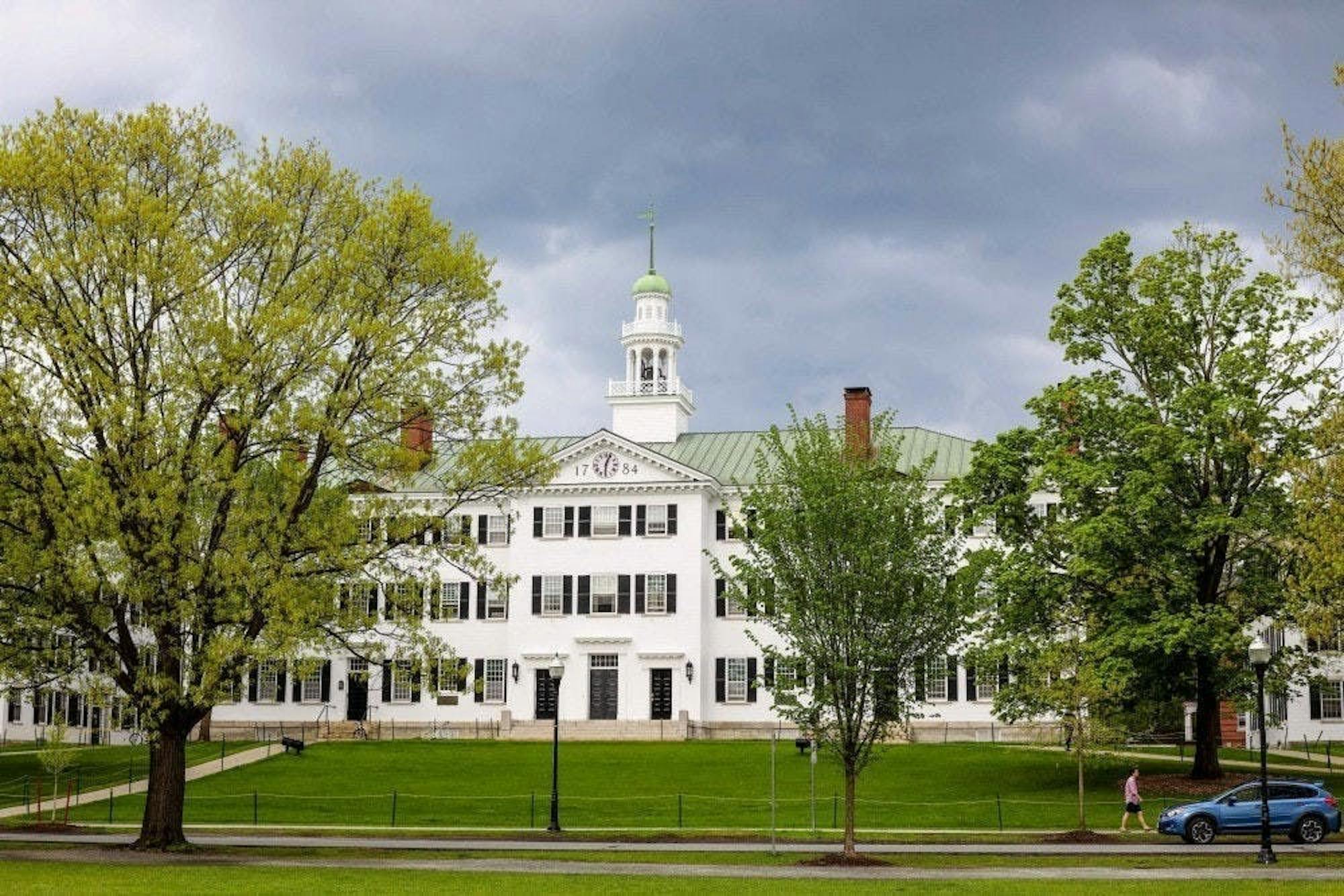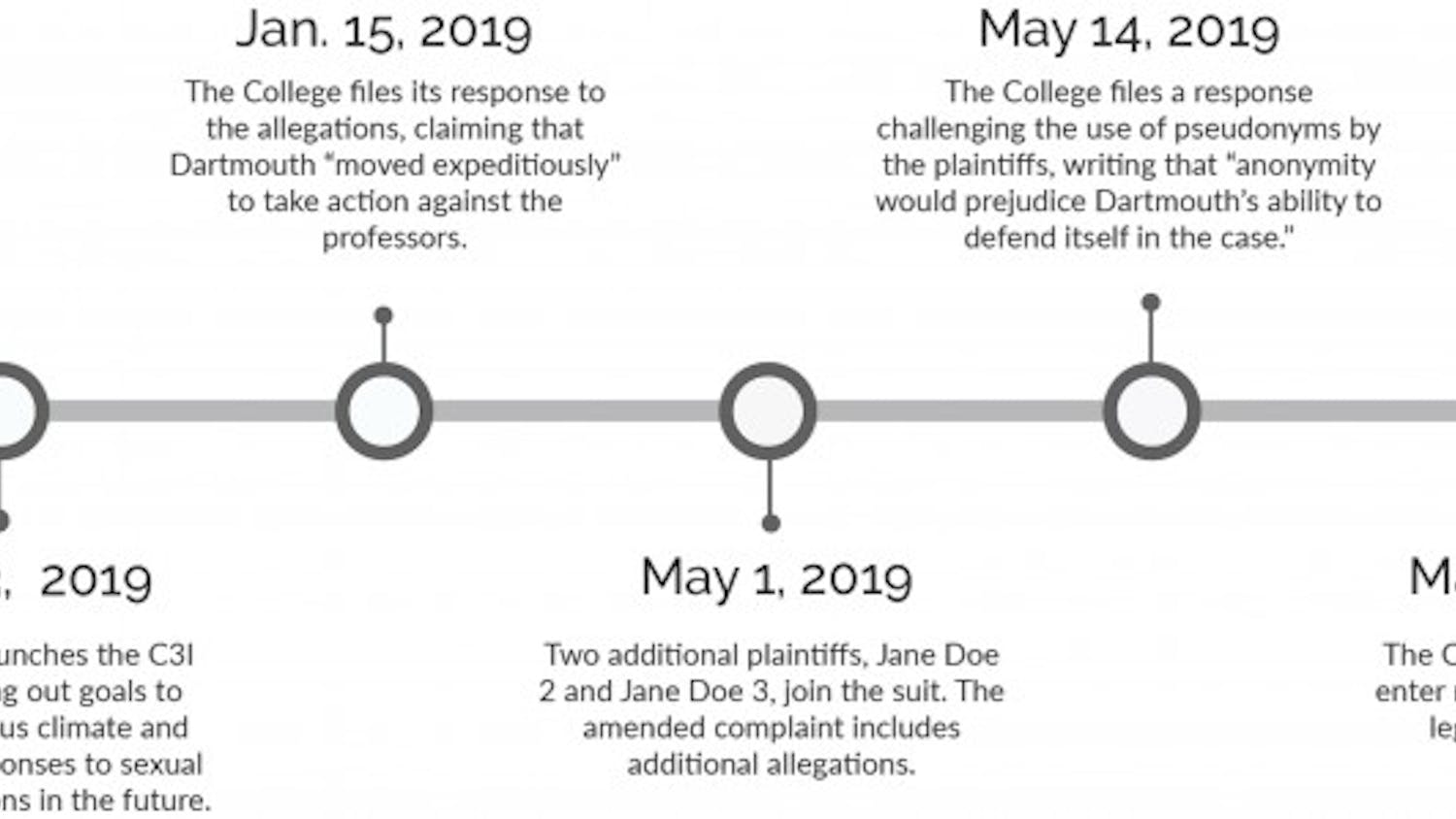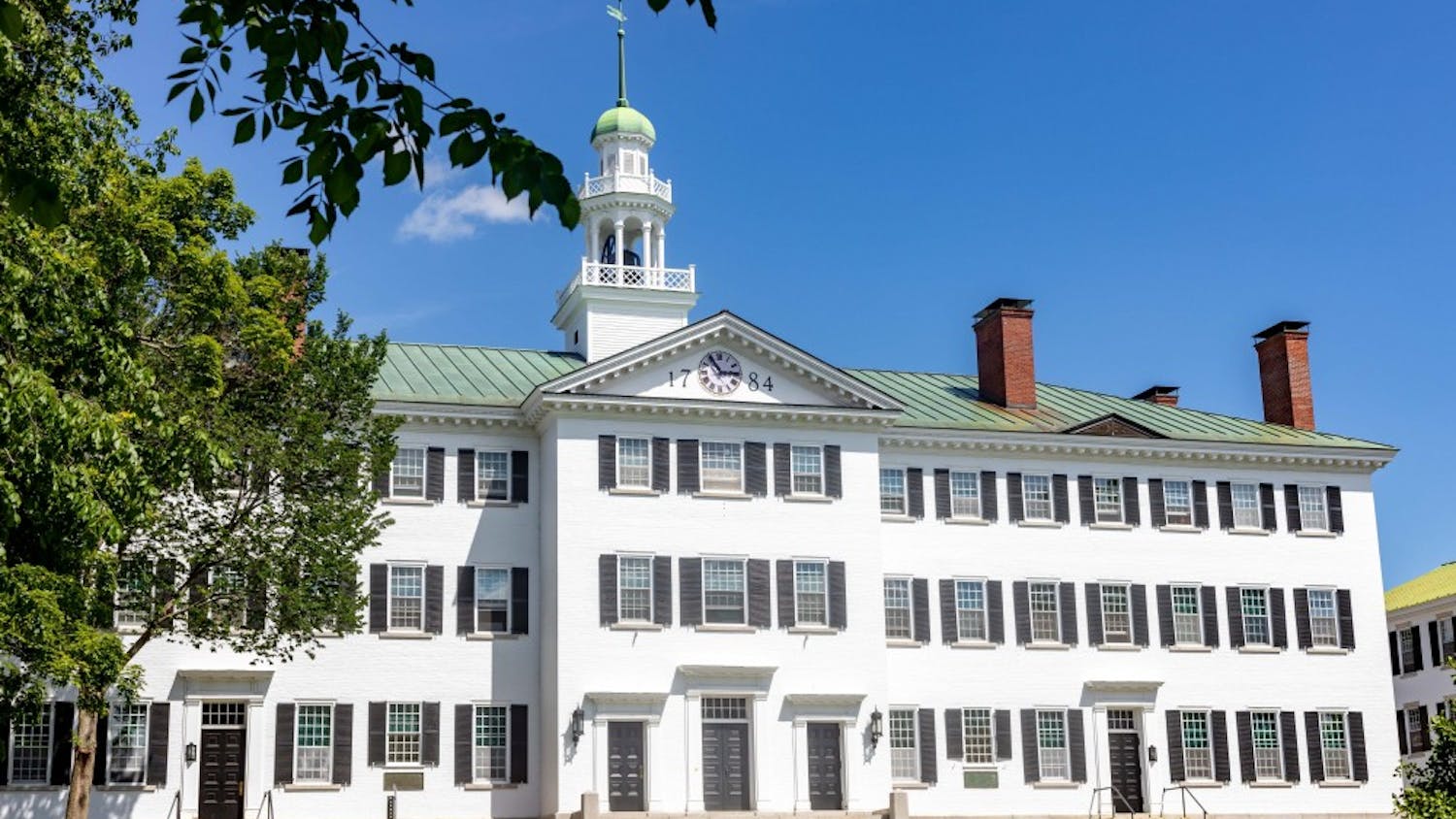Updated Oct. 10, 2019 at 10:23 a.m.
On Oct. 1, Dartmouth released its annual Security and Fire Safety, or “Clery,” Report for 2018. This year’s report, which encompasses incidences from on-campus property, residential facilities, non-campus properties and public properties, saw an increase in reported rapes, statutory rape and dating violence while reports of liquor law violations, hate crimes and aggravated assaults decreased.
Despite a number downward trends, reports of rape increased; 34 rapes were reported in 2018 compared to 24 in 2017. Reports of fondling, statutory rape and dating violence also increased, though by not as high of a margin.
Dartmouth’s Title IX office coordinator Kristi Clemens said believes that the rise in rape reports can be explained by more people actually reporting incidents. Under the federal Clery Act, the report must include crimes from the year they were reported, not the year in which they occurred. In light of a recent lawsuit against Dartmouth involving the sexual misconduct of three former professors in the psychological and brain sciences department, alumni may have felt empowered to come forward and report their cases from previous years, according to Clemens.
Additionally, reporting typically increases when there is a change of staffing within the Title IX office, she said. Clemens, who became the College’s Title IX Coordinator in April of 2018, said she believes that the changing leadership could have impacted the rate of reporting.
“People tend to decide that it is time for them to report for a variety of reasons,” Clemens said.
College spokesperson Diana Lawrence echoed a similar sentiment about reporting.
“We have not seen any indication that incidents are increasing,” Lawrence wrote in a email statement. “More reports do not mean that the prevalence of sexual assault is higher; it seems counterintuitive, but if people are reporting it means they trust the system to handle it appropriately, they know the resources are there, and they want to be part of a culture that effects change.”
Lawrence cited additional factors such as more trust in reporting mechanisms, Clemens’ role as Title IX coordinator and reports inspired by the #MeToo movement — including against the three former PBS professors — as causes for the increase in reports.
“We recognize that effectively addressing sexual misconduct requires courageous survivors coming forward to make a report,” Lawrence wrote. “We are committed to honoring their bravery and doing everything we can to eradicate sexual misconduct from our campus.”
Diana Whitney ’95, a leader the advocacy group Dartmouth Community against Gender Harassment and Sexual Violence, expressed hope that the increased reports can be attributed to better reporting mechanisms but said she is still concerned about the statistics.
“We can hope and assume it is because of an increase in reporting,” Whitney said, noting that is hard to pinpoint specific reasons for the increase in reports.
Whitney said the statistic on rape is especially worrying, stating that reports often only reflect about 20 percent of the rapes that occur.
“If we take the statistic in Clery, and multiply it by five, we get rape numbers in the 200s, and that is really disturbing,” Whitney said.
She also took issue with the word “fondling” used in the report.
“It is a very offensive term, making assault seem more friendly and harmless than it actually is,” Whitney said, calling upon Dartmouth to change this descriptor.
However, in a second email statement, Lawrence wrote that Dartmouth is required to use that specific language under the Clery Act's standards.
There are numerous groups and initiatives working to decrease sexual violence on campus, including the Title IX office, the Dartmouth Bystander Initiative, the Student and Presidential Committee on Sexual Assault, Movement Against Violence (which has recently been absorbed by the Dartmouth Sexual Violence Prevention Project), the Sexual Assault Peer Alliance and DCGHSV. The College faced significant controversy on the issue starting in 2017 after three professors in the PBS department were investigated and found responsible for sexual misconduct. Several survivors of the misconduct sued the College in Nov. 2018 and subsequently reached a monetary settlement with the College this summer. In light of those events, Dartmouth launched the Campus Climate Culture Initiative, also known as C3I, in Jan. 2019 and created a unified Sexual Misconduct Policy, which went into effect this term.
“We are equally committed to working with all members of our community as we expand our efforts through our Campus Climate and Culture Initiative to strengthen the safety and inclusivity of our learning environment,” Lawrence wrote.
The 1990 Clery Act mandated annual publication of crime statistics for all colleges and universities that participate in federal financial aid programs. Statistics from other Ivy League institutions, such as Brown University, Columbia University, Harvard University and Princeton University, showed downward or stable trends in the incidence of rape on campus. Princeton’s reporting has remained relatively stable — 13 rapes in 2016, 12 in 2017 and 13 in 2018; Harvard saw five fewer rapes in 2018, while Brown saw three fewer rapes in 2018. Columbia reported four more rapes in 2018.
However, like Dartmouth, some schools saw larger increases in the number of reported rapes. Michigan State University’s Clery Report contained a record 933 rapes. This statistic has been attributed to a highly publicized case involving USA Gymnastics coach and doctor at MSU, Larry Nassar, who was found guilty and sentenced to 60 years in prison on child pornography charges.
At Dartmouth, individuals can report crimes through outlets such as Dartmouth Safety and Security, the Hanover Police Department, the Title IX Office or the LiveSafe app.
The 2018 report shows no incidences of motor vehicle theft, negligent or non-negligent manslaughter, incest, robbery, arson or illegal weapons possession. Liquor law violations leading to disciplinary referral had the most incidences of all of the College’s crime statistics but remained nearly unchanged from the previous year: 272 cases were reported in 2018 compared 273 in 2017.
Notably, liquor law violations that led to arrests were down: 37 in 2018 compared to 46 in 2017. Hate crimes also substantially declined; eight were reported in 2018 compared to 14 reported the previous year. Aggravated assault, burglary, domestic violence, stalking and drug law violations experienced slight declines.





